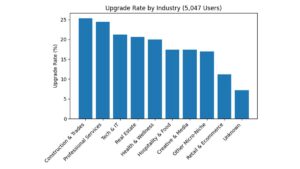The Hidden Costs of Poor Expense Tracking
Tracking expenses can feel like a tedious chore, but ignoring it often leads to bigger problems. Missed deductions, inaccurate reports, and lost receipts all translate into lost money. For small business owners, freelancers, and even individuals, expense tracking is not just about paperwork – it is about financial clarity and tax compliance.
Here are five of the most common mistakes in expense management, why they happen, and how you can avoid them with the right habits and tools.
1. Procrastinating on Expense Tracking
The Problem:
It is easy to put receipts aside and tell yourself you will “sort them later.” Days turn into weeks, and suddenly you are staring at a mountain of crumpled paper or unsorted e-receipts. The larger the pile grows, the harder it feels to start – which leads to even more procrastination.
How to Avoid:
Track expenses in real time. As soon as you receive a receipt, scan or forward it to your expense tracker. Apps like SparkReceipt let you snap a photo or automatically import e-receipts, so everything is logged instantly. By handling receipts on the spot, you prevent the cycle of delay and overwhelm.
2. Failure to Categorize Expenses Properly
The Problem:
Without categories, your financial records become messy. Misclassified or uncategorized expenses make it harder to see where money is going and can cause you to miss legitimate tax deductions. If your business has multiple people with reimbursable expenses, the confusion only multiplies.
How to Avoid:
Always assign expenses to the correct category. Manual categorization takes time, and mistakes are easy to make. This is where SparkReceipt stands out. The app uses AI to automatically categorize expenses for you – even down to the line-item level. That means a Walmart receipt for printer paper goes under “Office Supplies” instead of “Groceries.” With accurate categorization from the start, your reports are cleaner, your deductions are easier to claim, and tax filing becomes far less stressful.
3. Neglecting to Track Small Expenses
The Problem:
It is tempting to dismiss small purchases – the $2 coffee or the quick $15 office supply run. But over time, these small amounts add up to real money. If you do not track them, you miss out on deductions and distort your true spending picture.
How to Avoid:
Every dollar counts. Make a habit of logging even the smallest transactions. A receipt scanner app makes this painless: snap a photo, let the app extract the data, and you are done. By capturing small expenses, you avoid lost savings and gain a more accurate view of your cash flow.
4. Ignoring the Importance of Digital Backups
The Problem:
Paper receipts fade, tear, or get misplaced. Saving images of receipts on a computer helps, but it is not foolproof. Files can be deleted, misplaced, or become difficult to search. Without a proper digital system, you risk losing valuable proof of expenses.
How to Avoid:
Use a tool that automatically backs up your receipts and expense data to the cloud. This protects against accidental loss and makes searching simple. With SparkReceipt, you can find receipts by vendor, category, or date in seconds – far easier than scrolling through folders.
5. Failing to Separate Business and Personal Expenses
The Problem:
Mixing personal and business spending leads to chaos. When tax season arrives, you are left sifting through accounts trying to figure out which transactions qualify. It also makes it difficult to measure your business profitability accurately.
How to Avoid:
Keep separate bank accounts or credit cards for business and personal use. Then, use an expense tracker that allows you to filter and manage expenses by account. SparkReceipt lets you keep personal and business expenses distinct, making it easier to stay compliant and understand your business finances at a glance.
Why Proper Expense Tracking Matters
Expense tracking is not just about staying organized – it is about saving money, claiming deductions, and avoiding stress. By avoiding these five common mistakes, you will gain a clear picture of your spending, prevent errors, and simplify tax time.
With modern receipt scanner apps like SparkReceipt, tracking expenses no longer has to be a chore. The app automates scanning, categorizing, and reporting, so you can focus less on paperwork and more on growing your business.



